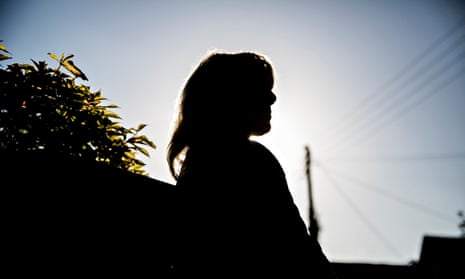A few weeks ago an emergency housing officer made a late night call to the domestic violence helpline run by Women’s Aid and Refuge. He was trying to find refuge accommodation for Violet (names in this piece have been changed), a 19-year-old who had escaped abuse with her twin babies. She had nowhere else to turn.
There was refuge space for Violet and her children in a neighbouring county, far from her abuser, where she would be safe. However, a new rule capped the number of women they could take from outside their area. The bed was left empty and they turned her away.
Today, on the International Day for the Elimination of Violence Against Women, as I hear more stories like Violet’s, I am deeply worried that the clock is being turned back. Instead of the improvements we need in the criminal justice system and local services, the opposite is happening. As home secretary, Theresa May’s policies are letting women down, and it’s time for urgent change.
Shockingly, the national network of refuges is starting to crumble before our eyes. Britain was one of the first countries to pioneer safe houses for those fleeing violence. More than a million women and hundreds of thousands of men experience domestic violence every year. And women can be at greatest risk when they make the brave decision to leave. Refuges provide a vital safe haven with expert support and sanctuary to help families get back on their feet and start rebuilding their lives.
That network is now under terrible strain. Women’s Aid estimates that 155 women and 103 children are turned away from refuges every day. And services are closing. Many are using their reserve funding to stay open and some areas have no refuge provision left at all. In the face of big budget cuts, some councils have brought in the “local connections” rule to ring-fence their funding for local women. Yet this is putting more women at risk.
Lorna is convinced that moving saved her life. She suffered persistent beatings and sexual abuse by her partner. Her employer helped her move to another branch of the business in another town without telling anyone where she had gone. But she couldn’t have managed it without temporary supportive accommodation near the other branch office. Violet and her twins did not have the same option. They were forced to take emergency accommodation in the very area she was trying to flee from.
Specialist support is being lost too. Some areas are only funding generic accommodation or help in victims’ own homes – ending the expert support and sanctuary that some families need.
So what is the Home Office doing about it? Where are the national standards? What is Theresa May doing to protect women’s safety? Or to make sure that local councils work together so women’s safety isn’t disproportionately hit?
Too often this government is just turning a blind eye. What is happening to refuges reflects a wider and deeper problem. Labour’s women’s safety commission has been gathering evidence from across the country, and time and again it has heard that women’s safety is being hit disproportionately and justice is being undermined. The proportion of rape and domestic violence cases reaching prosecution is falling, not rising. Specialist prosecutors for rape have been cut back, domestic violence courts are closing, and specialist police officers are overstretched. Mothers fleeing violence are struggling to get legal aid. Families with police-backed security and panic rooms at home are being charged the bedroom tax and told to move.
Yet amazingly, the government has no idea of the cumulative impact their policies are having on women’s safety, because they haven’t carried out a proper audit in the face of huge upheaval. Lack of Home Office interest or intervention and lack of national standards at a time of big budget cuts, are letting women down.
A Labour government would use £3m of the savings made from abolishing police and crime commissioners to set up a national refuge fund and we will continue national support for rape crisis centres too. We will bring in new local and national standards for policing, prosecutions and support services and a new national commissioner to make sure standards are met, as well as strengthening the law. And perhaps most important of all, we will insist on action to prevent violence in the next generation. This government has voted repeatedly to block our proposal for compulsory sex and relationship education to teach zero tolerance of violence in relationships among growing girls and boys.
Across the world, other governments, charities, criminal justice organisations, councils and community campaigners are marking 16 days of action to eliminate violence against women. It is time our government stopped turning its back and did far more to keep women safe.








